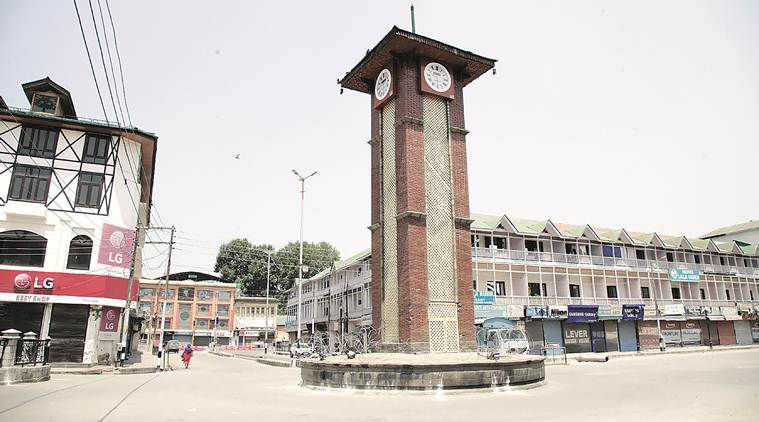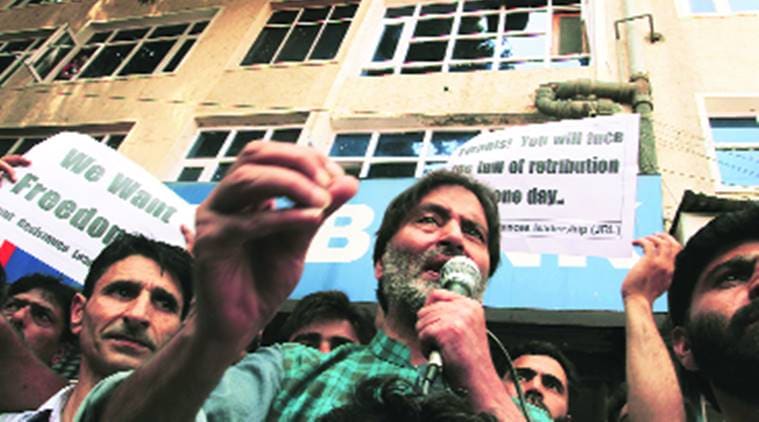 Vehicles off roads, business establishments shut in Srinagar. (Photo: Shuaib Masoodi)
Vehicles off roads, business establishments shut in Srinagar. (Photo: Shuaib Masoodi)
A day ahead of a Supreme Court hearing on petitions against Article 35-A, Kashmir on Sunday observed an unprecedented shutdown against any tampering with the legislation that guarantees special constitutional rights to the people of Jammu and Kashmir.
The shutdown call was given by separatists to protest against petitions seeking scrapping of Article 35-A. They have also called for a complete shutdown on Monday, the day of the hearing.
A top religious body of Kargil, Jamiat Ulami Asna Asharia, also backed the shutdown call, asking people in the Ladakh district to observe it in support of Article 35-A.
The total strike extended beyond Srinagar to North Kashmir’s Baramulla, Sopore, Handwara, Kupwara, Pattan and Bandipore towns, and places in South and Central Kashmir. Almost all business establishments remained closed and public and private transport stayed off the roads. No shikaras plied on Srinagar’s Dal lake.
While government offices were already closed due to it being Sunday, business establishments and private offices also downed shutters.
The government suspended the Amarnath Yatra and pilgrims weren’t allowed to move from Jammu to Srinagar. The pilgrims at the twin base camps of Pahalgam and Baltal were, however, allowed to move towards the cave shrine.
 JKLF chief Yasin Malik at a protest Friday. (Express Photo by Shuaib Masoodi)
JKLF chief Yasin Malik at a protest Friday. (Express Photo by Shuaib Masoodi)
Large contingents of police and paramilitary forces were deployed in Srinagar to prevent any protests, while separatist leaders were put under house arrest. But trade bodies managed to march towards Lal Chowk in the city centre and organised a sit-in. The 27 trade bodies of the Valley have joined hands on the matter, and called for daily protests to resist any attempt to “alter the special position of the state”.
Separatists have also warned of a “mass agitation” if the special provision is abrogated.
Article 35-A empowers the J&K Constitution to define “permanent residents” of the state, and was added through “Constitution (Application to Jammu and Kashmir) Order, 1954”, issued by the President under Article 370. It replicates a state subject law promulgated by Dogra king Maharaja Hari Singh in 1927, following a strong campaign by Kashmiri Pandits who were opposed to the hiring of civil servants from Punjab.
Also under house arrest, Hurriyat Chairman Mirwaiz Umar Farooq tweeted, “As Hurriyat leadership and activists stand caged in homes while our offices raided, complete protest strike being observed throughout against the mischief to change the demography of the state and its disputed status through ‘legal challenge’ to Art 35A.”